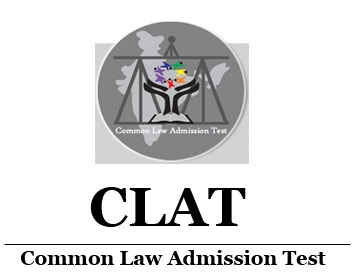Strategy for CLAT Exam challenge
Disclaimer: This website is NOT associated with CBSE, for official website of CBSE visit - www.cbse.gov.in

Strategy for CLAT Exam challenge
With more than 40,000 students expected to write the Common Law Admission Test (CLAT) on May 14, the ratio is quite skewed, as there are only around 2,000 seats in all 18 National Law Schools put together. Of course, several private law colleges also use CLAT scores to give admission for their five-year B.A. LLB., programme. However, for a student who is determined to join only the National Law Schools, the competition will be tough. Strategic preparation, meticulous planning and systematic hard work will ensure one’s success in this challenging entrance test.
Set your target: The starting point of any worthwhile pursuit is to set your goal clearly. If you are keen on joining the National Law School of India University, Bengaluru (NLSIU), or NALSAR Law University, Hyderabad, you are chasing only 120 seats. It also means you should emerge in the top one per cent. Do a little bit of research to find out which rank you must get to make it to a law school of your choice. There is no cutoff percentage indicated by CLAT authorities; admissions to the National Law Schools are based on merit-cum-preference scheme. So, be careful while ranking preferences of law schools at the time of submitting the online application for CLAT. These preferences cannot be changed later.
The balancing act: We live in an era where multi-tasking is the order of the day. While the focus for any Class XII student is board exams, it is not wise to completely shut off from entrance exam preparation. Surely, most students can find at least one hour a day for CLAT preparation. Vocabulary building, brushing up on arithmetic and keeping oneself abreast of current affairs can all be managed within this one hour. These exercises, if done meticulously through the next couple of months, will keep you in top form for the final leg of preparation. Also, since the CBSE examination has been postponed by a week this year, many students will complete their exams only by mid-April. Such students have no choice but to begin their preparation for CLAT right away.
Mock exams: It is important for students to realise that be it CLAT or any competitive examination, there is no rigid syllabus. Most of these exams are aptitude tests that examine a student’s general abilities in areas such as reasoning, verbal ability and arithmetic. Mock exams give students the opportunity to familiarise themselves with this scheme of questioning which is different from school exams. Besides, CLAT is a speed test; students are expected to crack 200 questions in about 120 minutes. With less than one minute to tackle each question, online mocks give CLAT aspirants several trials before the actual exam.
Further, mock exams highlight one’s strengths and weaknesses. Students who usually score 90 per cent marks in English may presume that they are good at the subject and may discover later that they have barely crossed 50 per cent in this section in a CLAT mock test. This happens because Board exams are syllabus-centric, while competitive exams test one’s in-depth knowledge in a subject. This analysis is vital to streamlining your preparation. Finally, taking real-time online mocks helps students with time management skills and also give them an idea of how fellow students are performing.
The test pattern
Understanding the type of questions and their standard is vital to one’s success. Ideally, one should get hold of the previous years’ CLAT question papers and get familiarised with the subjects and topics in each section.
A quick look at CLAT pattern
English: Questions are asked based on English comprehension, grammar, vocabulary, sentence ordering, etc.
Arithmetic: Questions are based on basic arithmetic topics such as averages, percentages, ratio and proportion, time and work, time and distance, etc.
General knowledge: While 50 per cent of the questions in this segment are based on current affairs, the rest are asked from static general knowledge, which comprises history, geography, science, books and authors, and so on.
Logical reasoning: Reasoning-based questions revolve around analogy, number series, direction sense test, puzzles and critical reasoning.
Legal aptitude: This segment is intended to test the candidate’s aptitude for studying law. Hence, questions take the form of principles – facts – conclusion. Based on the given principle, the most suitable conclusion must be arrived at after using the facts of the given case.
Courtesy: The Hindu